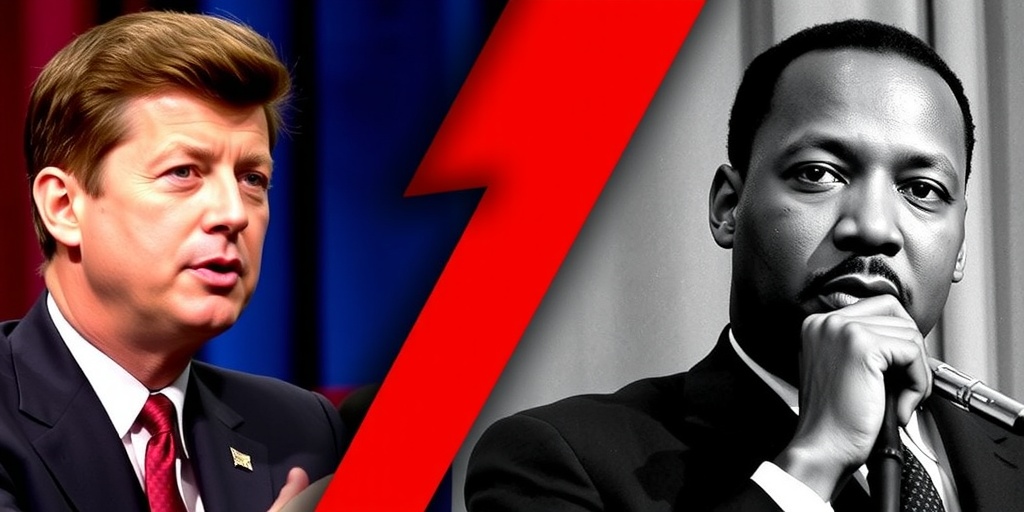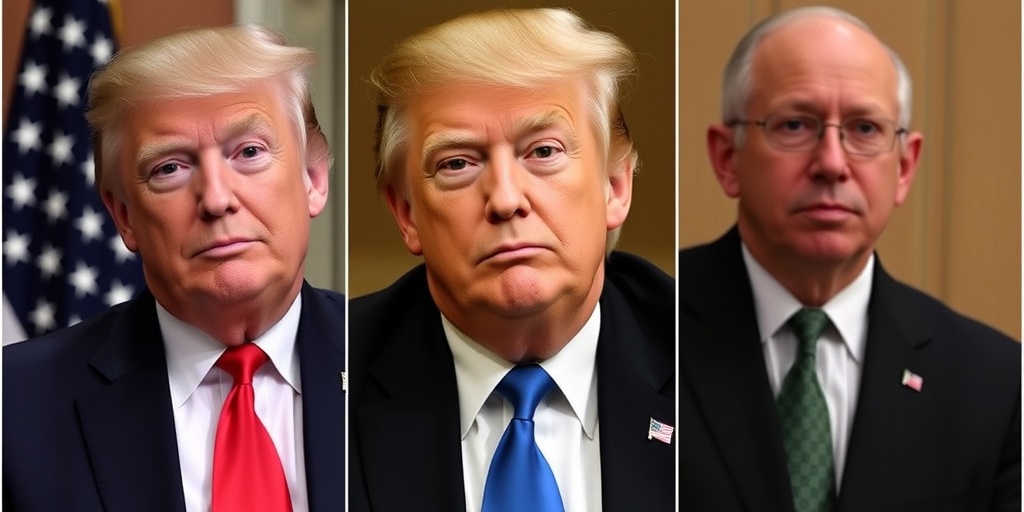Now Reading: National Endowment for Democracy Sues Trump Aides Over Funding Freeze
-
01
National Endowment for Democracy Sues Trump Aides Over Funding Freeze
National Endowment for Democracy Sues Trump Aides Over Funding Freeze

National Endowment for Democracy Sues U.S. Government Over $239 Million in Withheld Funding
In a significant development for the promotion of democratic initiatives abroad, the National Endowment for Democracy (N.E.D.), a nonprofit organization with a long history of bipartisan support, has initiated a lawsuit against the U.S. government. The suit, filed in the Federal District Court for the District of Columbia, seeks to reclaim $239 million in congressional appropriations that the organization claims have been wrongfully withheld by government officials, including the Secretary of State.
The N.E.D. is entrusted with the responsibility of promoting democracy, free speech, and human rights across the globe. However, the organization faces severe operational challenges, having placed approximately 75 percent of its workforce on unpaid leave. Furthermore, around 1,200 grant recipients have been deprived of funding for their projects since late January following an executive order signed by former President Donald Trump. This order effectively froze all foreign aid, which has had devastating ramifications for the N.E.D. and its various initiatives.
Members of the organization’s board, which includes both current and former politicians from the Republican and Democratic parties, expressed their frustration over the inability to resume the flow of funds from the State Department. In a statement following the board’s decision to file the lawsuit, Peter Roskam, a former Republican congressman from Illinois and the organization’s chair, indicated that legal action was a last resort after exhausting all other avenues. "We’d be delighted to learn that this was just an oversight and someone just forgot to hit the send button," he remarked. "But clearly that’s not what’s going on."
The crux of the lawsuit revolves around the classification of the funding in question. The N.E.D. contends that the appropriated funds should not be deemed as foreign aid, which falls under the purview of the State Department or any other executive agency. According to the board, withholding these funds constitutes an illegal act that contravenes the will of Congress.
This legal battle highlights a monumental shift in U.S. foreign policy under Trump’s administration, marked by a diminishing emphasis on international democracy and human rights programs. The current administration has appeared to adopt a more transactional and nationalistic approach to foreign alliances, distancing itself from traditional partnerships and collaborative efforts aimed at fostering global democracy.
Criticism of the N.E.D. has been exacerbated by voices in the administration. Recently, billionaire entrepreneur Elon Musk, who has served as an adviser to Trump, launched a scathing critique of the N.E.D., labeling it as “RIFE with CORRUPTION!!” Musk’s sentiment represents a growing narrative within certain political circles regarding the value and effectiveness of organizations dedicated to promoting democracy abroad.
In conjunction with the funding freeze, the administration’s “America First” policy has continued to raise concerns. This policy has been further emphasized through Trump’s recent criticisms of allies, such as Ukraine in its conflict with Russia, as well as the imposition of tariffs on Canada and Mexico. Such policies, combined with a nearly complete halt to foreign aid, have led many strategists to question the effectiveness of U.S. soft power on the world stage.
Historically, the grants awarded by the N.E.D. have played a crucial role in shaping democratic initiatives in over 100 countries, including authoritarian regimes viewed as adversaries by previous administrations. These grants are instrumental in funding projects aimed at empowering citizens, ranging from efforts to restore free speech to initiatives that support electoral monitoring in oppressive jurisdictions such as Venezuela and Cuba.
Former Republican Senator Mel Martinez voiced the organization’s struggles as particularly concerning for those exiled from countries like Cuba and Nicaragua. “That entire group of people are politically active,” he stated, highlighting the need for support for overseas dissidents who are often strong proponents of democratic values. In Venezuela, for instance, the N.E.D. has backed independent groups monitoring elections and advocating for the rights of dissidents facing persecution.
The N.E.D.’s origins can be traced back to a 1982 speech by President Ronald Reagan, who emphasized the importance of democracy in combating communism. Following that address, Congress established the organization to ensure consistent support for democratic efforts. N.E.D. collaborates with sister organizations, such as the International Republican Institute and the National Democratic Institute, both of which are facing operational shutdowns as a result of funding constraints.
Legal experts have pointed out that the case against the government has drawn parallels to past lawsuits from contracting firms for U.S.A.I.D., highlighting the clear legislative mandates that necessitate the release of funds. David Super, a Georgetown University law professor, affirmed that the withholding of N.E.D. funds violates established laws meant to protect the distribution of appropriated funds, adding urgency to the resolution of this legal dispute.
As this lawsuit unfolds, the implications for democracy promotion, both domestically and abroad, will be significant. The tension between political rhetoric surrounding democracy and the realities facing organizations like the N.E.D. highlights critical challenges in U.S. foreign policy and its long-term impact on global democratic movements.
Stay Informed With the Latest & Most Important News
Previous Post
Next Post
-
 01New technology breakthrough has everyone talking right now
01New technology breakthrough has everyone talking right now -
 02Unbelievable life hack everyone needs to try today
02Unbelievable life hack everyone needs to try today -
 03Fascinating discovery found buried deep beneath the ocean
03Fascinating discovery found buried deep beneath the ocean -
 04Man invents genius device that solves everyday problems
04Man invents genius device that solves everyday problems -
 05Shocking discovery that changes what we know forever
05Shocking discovery that changes what we know forever -
 06Internet goes wild over celebrity’s unexpected fashion choice
06Internet goes wild over celebrity’s unexpected fashion choice -
 07Rare animal sighting stuns scientists and wildlife lovers
07Rare animal sighting stuns scientists and wildlife lovers





















